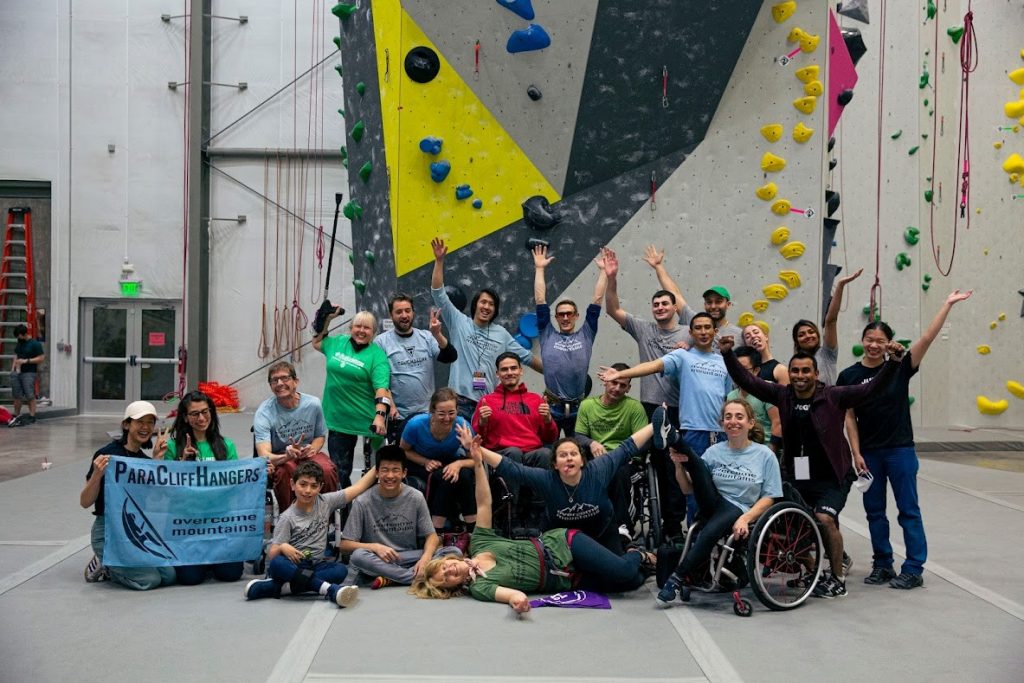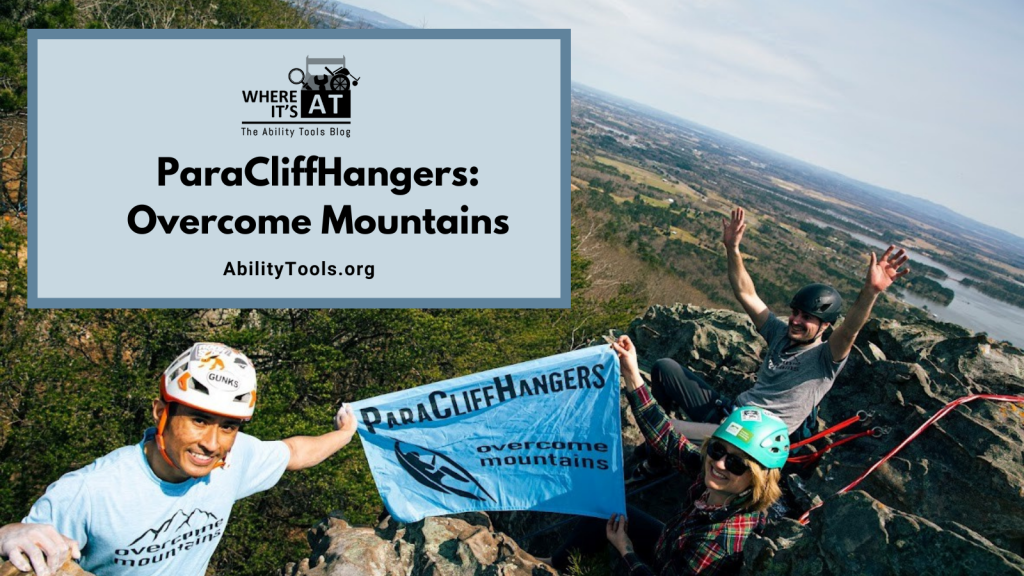
Emily Seelenfreund, Cofounder & Vice President of Para Cliff Hangers
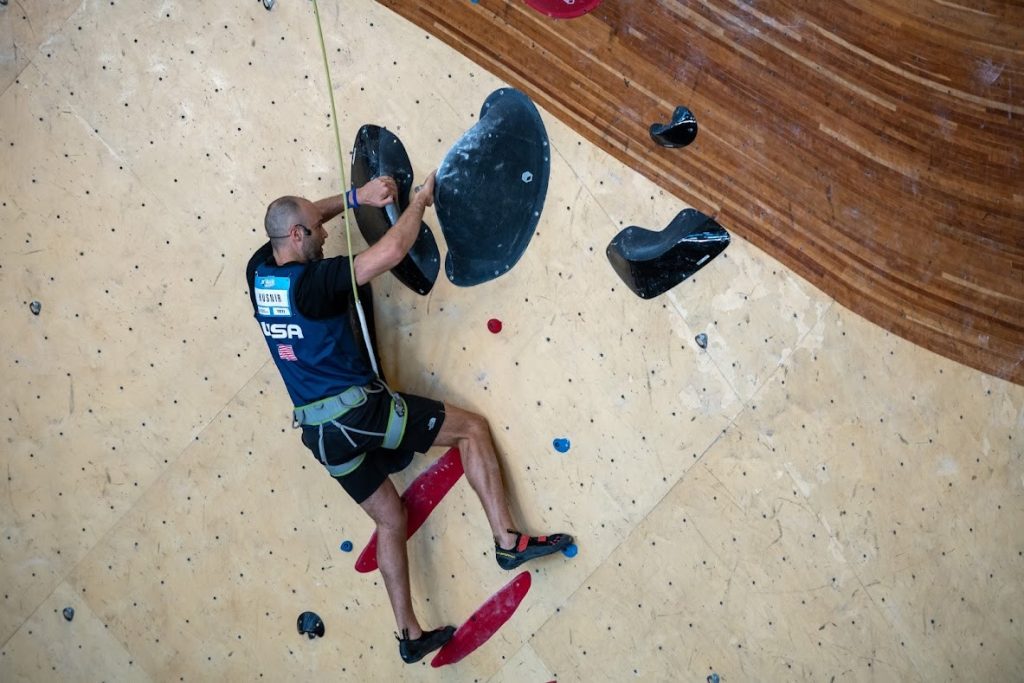
When you hear adaptive recreation- what comes to mind? Perhaps wheelchair basketball; maybe quad rugby if you saw Murderball back in the day; possibly Goalball if you are really in the know. Rock climbing most likely doesn’t make your short list. It didn’t make mine- in fact the first time I rolled into a climbing gym- I wasn’t sure I’d be able to get up the wall at all.
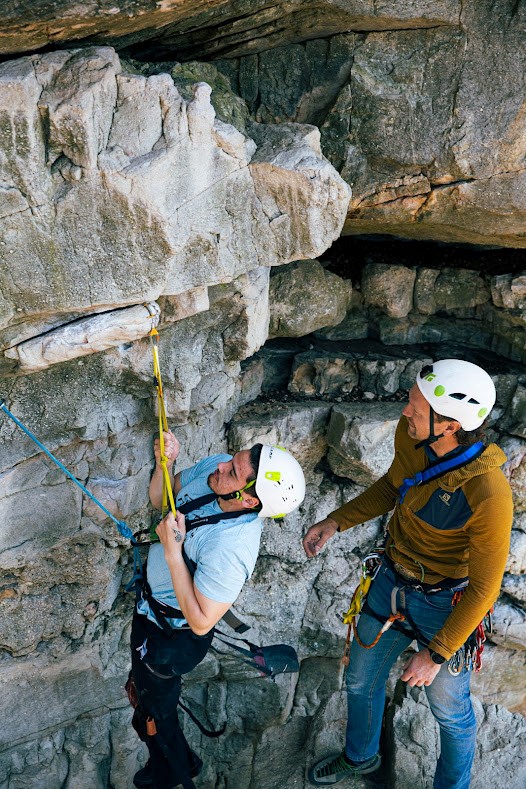
Growing up with Osteogenesis Imperfecta and using a wheelchair or crutches for mobility, I was used to lots of fitness opportunities- especially those that involved outdoor recreation and any degree of risk being off-limits. I quickly learned that climbing was different. Climbing is, at its core, a sport about adapting. There is no one “right way” to climb a wall- ten different climbers might approach the same route in ten different ways- one using their flexibility to their advantage- another relying on brute force, another cleverly finding a hidden rest area to get to the top.
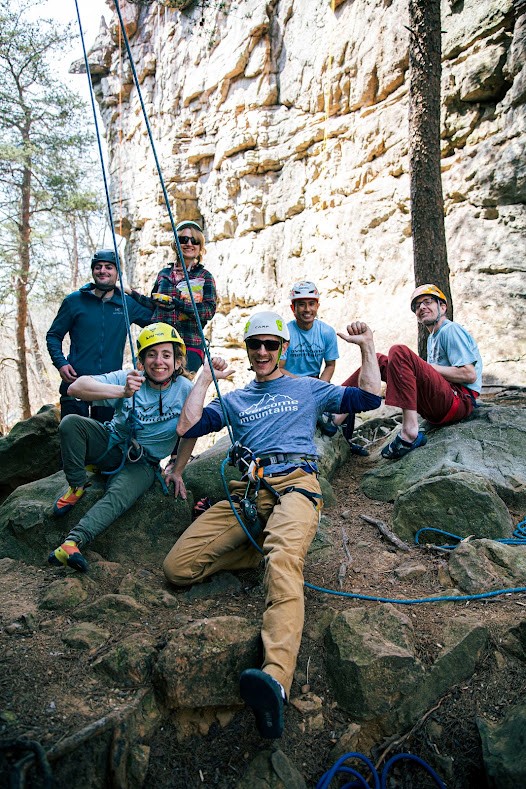
Adaptive climbing is simply a natural extension of climbing’s innate adaptability and once I experienced it- I was roped in! My friend and first climbing mentor, Denise Stypulkowski, was also addicted- she found climbing shortly after being diagnosed with Multiple Sclerosis and was drawn to an activity she could do alongside her brother. We decided we wanted to give back to the climbing community –and create a space for other climbers with disabilities – which is how, in November 2019, ParaCliffHangers (“PCH”) was born.
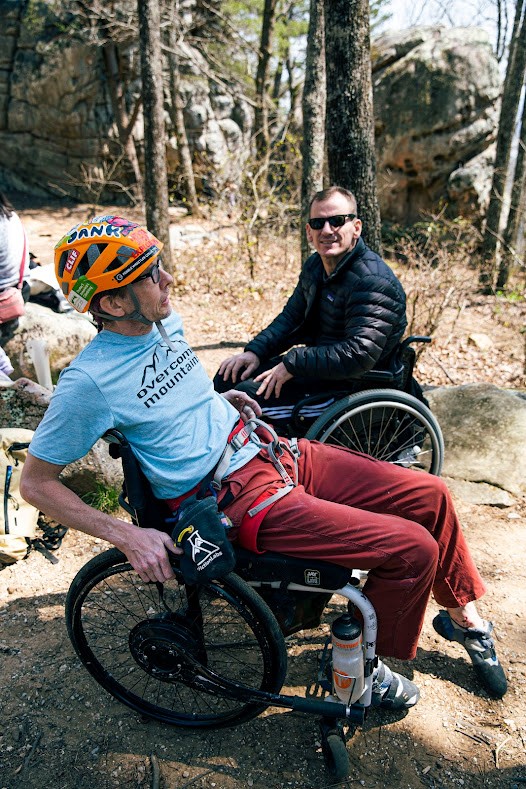
Today, PCH is a thriving non-profit, running programming in both New York City and the East Bay. We support climbers through recurring indoor meetups, outdoor climbing adventure trips, and by sponsoring a competitive adaptive climbing team that competes at national and international competitions.
Adaptive climbers utilize a variety of adaptive equipment and techniques to climb their own mountain. For example, at PCH sessions we often set-up a mechanical advantage system that uses pulleys to assist climbers by removing some of their weight when ascending. Check the system out in action here:


